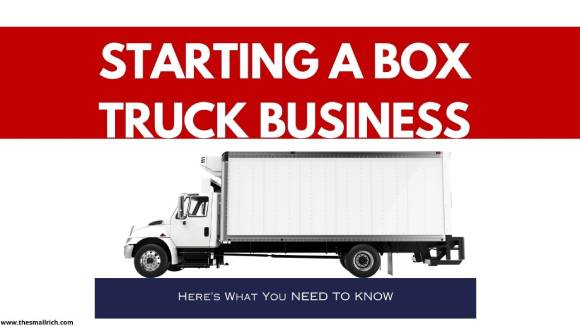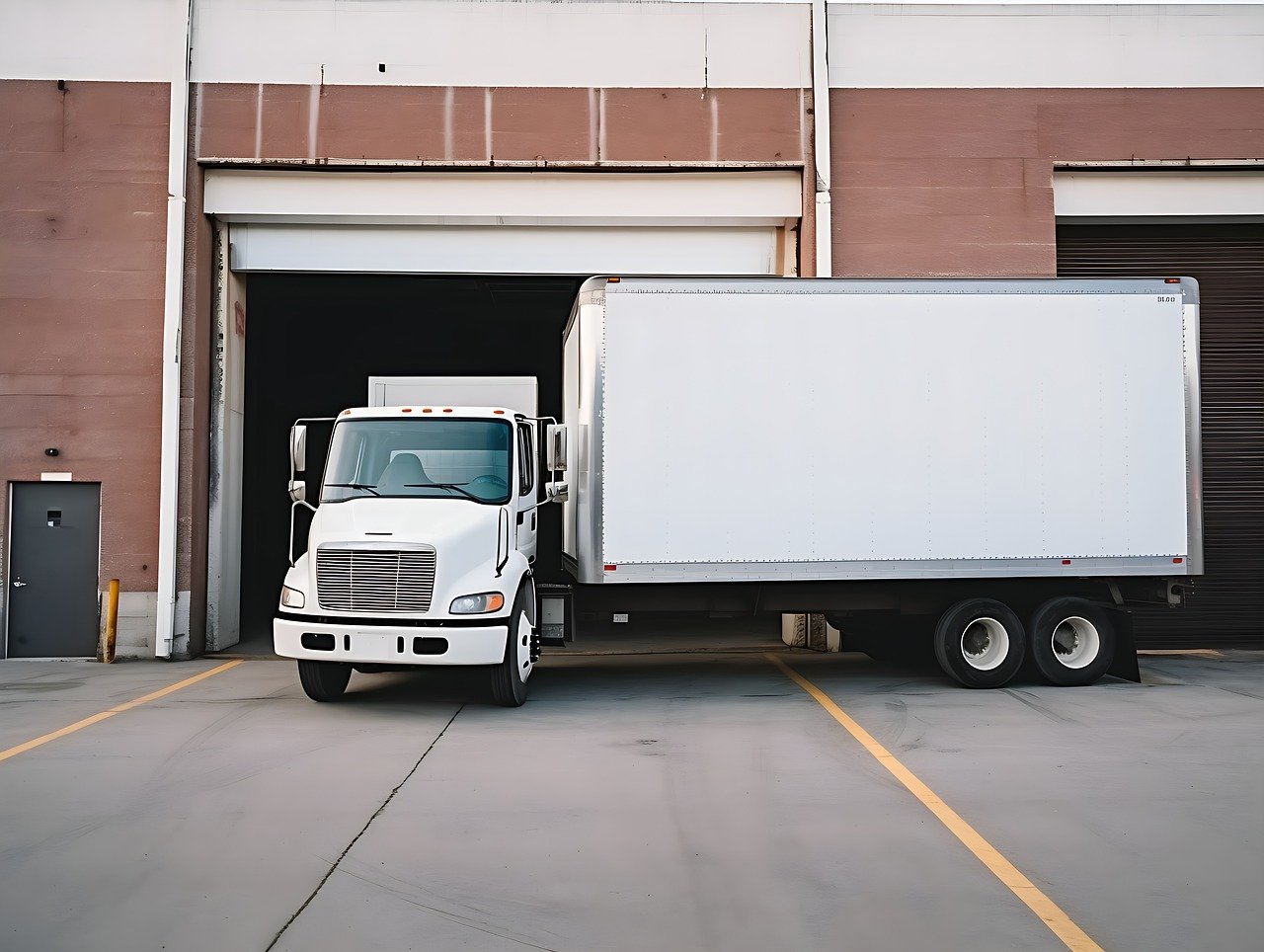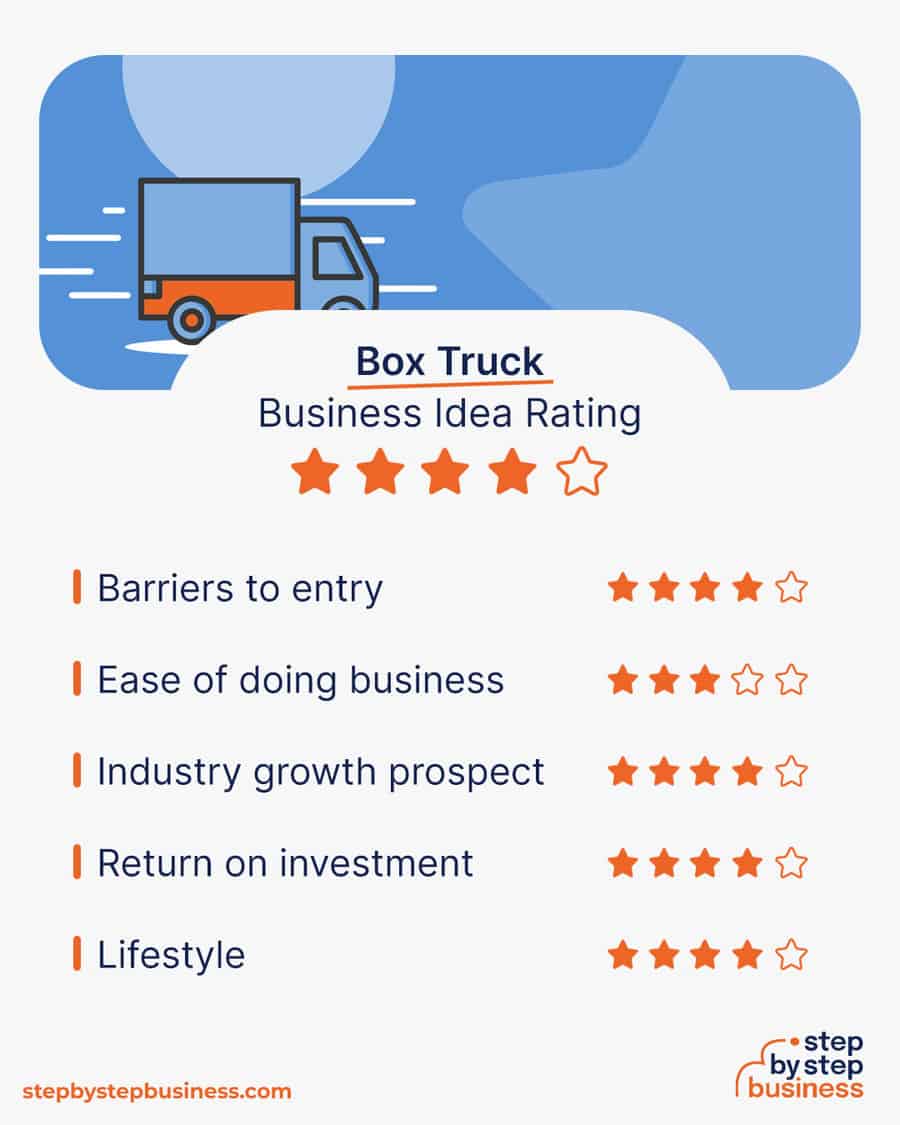Unlocking the Potential of a Box Truck Business
Owning a box truck business can be a lucrative venture, offering a unique combination of flexibility and profitability. As the demand for delivery and logistics services continues to grow, entrepreneurs are increasingly turning to box truck businesses as a way to capitalize on this trend. With the rise of e-commerce and the need for efficient, reliable transportation, the box truck industry is poised for significant growth in the coming years.
One of the key advantages of owning a box truck business is the ability to operate in a variety of markets. From local deliveries to long-haul transportation, box trucks can be used to transport a wide range of goods, from packages and parcels to furniture and equipment. This versatility makes it an attractive option for entrepreneurs looking to diversify their business and expand their customer base.
In addition to its flexibility, owning a box truck business also offers a high degree of autonomy. As the owner of a box truck business, you have the freedom to choose your own routes, set your own schedules, and select the types of cargo you want to transport. This independence can be a major draw for entrepreneurs who value the ability to work on their own terms.
Furthermore, the initial investment required to start a box truck business is relatively low compared to other types of businesses. With the cost of a box truck ranging from $10,000 to $50,000, depending on the size and condition of the vehicle, it is possible to get started with a relatively modest investment. This makes it an accessible option for entrepreneurs who may not have a large amount of capital to invest.
Overall, owning a box truck business offers a unique combination of flexibility, autonomy, and profitability, making it an attractive option for entrepreneurs looking to start a new business. With the demand for delivery and logistics services continuing to grow, the potential for success in this industry is significant.
Navigating the World of Box Truck Ownership
When it comes to owning a box truck business, selecting the right vehicle is crucial to the success of your operation. With a wide range of new and used box trucks available, it’s essential to consider several factors before making a purchase. The size and type of cargo you plan to transport, the distance and frequency of your routes, and the budget you have available for maintenance and repairs are all important considerations.
New box trucks offer the latest technology and safety features, but come with a higher price tag. Used box trucks, on the other hand, can be a more affordable option, but may require more maintenance and repairs. It’s also important to consider the fuel efficiency and emissions of the vehicle, as these can impact your operating costs and environmental impact.
In addition to selecting the right vehicle, owning a box truck business also requires careful consideration of maintenance, insurance, and regulatory compliance. Regular maintenance is essential to ensure the longevity and reliability of your vehicle, and to prevent costly repairs down the road. Insurance is also critical, as it can protect you against accidents, theft, and other unforeseen events.
Regulatory compliance is another important aspect of owning a box truck business. This includes obtaining the necessary licenses and permits, adhering to safety regulations, and complying with environmental standards. Failure to comply with these regulations can result in fines, penalties, and even the loss of your business.
By carefully considering these factors and taking the necessary steps to ensure compliance, you can build a successful and profitable box truck business. Whether you’re just starting out or looking to expand your existing operation, owning a box truck business can be a rewarding and lucrative venture.
How to Start a Box Truck Business from Scratch
Starting a box truck business from scratch requires careful planning and execution. The first step is to obtain the necessary licenses and permits to operate a box truck business in your state and local area. This may include a commercial driver’s license (CDL), a business license, and a permit to operate a box truck.
Next, you will need to register your business and obtain an Employer Identification Number (EIN) from the Internal Revenue Service (IRS). This will allow you to open a business bank account and obtain financing for your business.
Creating a business plan is also essential to the success of your box truck business. A business plan should outline your business goals, target market, marketing and sales strategies, financial projections, and operational plan. This will help you to stay focused and ensure that your business is on track to meet its goals.
Securing funding for your box truck business is also crucial. You may need to obtain a loan or investment to purchase a box truck, equipment, and supplies. You can also consider alternative funding options, such as crowdfunding or leasing a box truck.
Additionally, you will need to set up a business bank account to manage your finances and keep track of your expenses. This will also help you to separate your personal and business finances.
Finally, you will need to obtain insurance for your box truck business. This may include liability insurance, cargo insurance, and workers’ compensation insurance. This will help to protect you and your business in case of accidents or other unforeseen events.
By following these steps, you can start a successful box truck business from scratch. Owning a box truck business can be a rewarding and lucrative venture, but it requires careful planning and execution.
Marketing Strategies for a Successful Box Truck Business
A successful box truck business requires a solid marketing strategy to attract and retain customers. In today’s digital age, online marketing is a crucial component of any marketing plan. This includes creating a professional website, utilizing search engine optimization (SEO) techniques, and engaging in social media marketing.
Social media platforms such as Facebook, Twitter, and LinkedIn provide a cost-effective way to reach a large audience and build brand awareness. By creating a business page and posting regular updates, you can engage with potential customers and promote your services.
Local advertising is also an effective way to reach potential customers in your area. This can include placing ads in local newspapers, flyers, and online directories. Additionally, partnering with local businesses and organizations can help you to reach a wider audience and build relationships with potential customers.
Building relationships with customers is critical to the success of a box truck business. This can be achieved by providing excellent customer service, offering competitive pricing, and ensuring timely deliveries. By building trust and loyalty with your customers, you can increase the chances of repeat business and positive word-of-mouth referrals.
Creating a strong brand identity is also essential for a successful box truck business. This includes developing a unique logo, color scheme, and overall visual brand. Consistency is key when it comes to branding, so ensure that all of your marketing materials, including your website and social media pages, reflect your brand identity.
By implementing these marketing strategies, you can increase your visibility, attract new customers, and grow your box truck business. Owning a box truck business requires a solid marketing plan, and by following these tips, you can set your business up for success.
Managing Operations and Logistics
Efficient operations and logistics management are critical to the success of a box truck business. This includes optimizing routes, managing cargo, and ensuring timely deliveries. By implementing effective logistics management strategies, you can reduce costs, increase productivity, and improve customer satisfaction.
One of the most important aspects of logistics management is route optimization. This involves using software and mapping technology to plan the most efficient routes for your drivers. By reducing the distance traveled and the time spent on the road, you can lower fuel costs, reduce wear and tear on your vehicles, and improve delivery times.
Cargo management is also essential to the success of a box truck business. This includes ensuring that cargo is properly loaded, secured, and transported to its destination. By implementing effective cargo management strategies, you can reduce the risk of damage or loss, improve delivery times, and increase customer satisfaction.
Timely deliveries are also critical to the success of a box truck business. This includes ensuring that cargo is delivered to its destination on time, every time. By implementing effective delivery management strategies, you can improve customer satisfaction, reduce the risk of late fees and penalties, and increase repeat business.
Investing in logistics management software can also help to improve the efficiency and productivity of your box truck business. This includes software that can help to optimize routes, manage cargo, and track deliveries in real-time. By implementing effective logistics management software, you can reduce costs, improve customer satisfaction, and increase repeat business.
By implementing effective operations and logistics management strategies, you can improve the efficiency and productivity of your box truck business, reduce costs, and increase customer satisfaction. Owning a box truck business requires careful planning and management, but with the right strategies in place, you can achieve success and build a thriving business.
Overcoming Common Challenges in the Box Truck Industry
Owning a box truck business can be a rewarding and profitable venture, but it’s not without its challenges. One of the most significant challenges faced by box truck business owners is competition. With so many box truck businesses operating in the same market, it can be difficult to stand out and attract customers.
Another challenge faced by box truck business owners is regulatory changes. The box truck industry is heavily regulated, and changes to laws and regulations can have a significant impact on business operations. Staying up-to-date with regulatory changes and ensuring compliance is essential to avoiding fines and penalties.
Equipment maintenance is also a common challenge faced by box truck business owners. Box trucks are subject to wear and tear, and regular maintenance is necessary to ensure they remain in good working condition. Neglecting equipment maintenance can lead to breakdowns, delays, and lost revenue.
Despite these challenges, there are steps that box truck business owners can take to overcome them. One of the most effective ways to overcome competition is to focus on providing excellent customer service. By building strong relationships with customers and providing reliable, efficient service, box truck business owners can differentiate themselves from competitors and attract repeat business.
Staying up-to-date with regulatory changes is also essential to avoiding fines and penalties. Box truck business owners should regularly review laws and regulations and ensure that their business is in compliance. This may involve investing in training and education for employees, as well as implementing new policies and procedures.
Regular equipment maintenance is also crucial to preventing breakdowns and delays. Box truck business owners should establish a regular maintenance schedule and ensure that all equipment is properly maintained. This may involve investing in new equipment or hiring a maintenance team.
By understanding the common challenges faced by box truck business owners and taking steps to overcome them, entrepreneurs can build a successful and profitable business. Owning a box truck business requires careful planning and management, but with the right strategies in place, it can be a rewarding and lucrative venture.
Scaling Your Box Truck Business for Growth
As a box truck business owner, scaling your business for growth is essential to increasing revenue and staying competitive. One of the most effective ways to scale a box truck business is to expand services. This can include offering additional services such as warehousing, freight forwarding, and logistics management.
Hiring employees is also a crucial step in scaling a box truck business. As the business grows, it’s essential to hire qualified drivers, dispatchers, and other support staff to help manage the increased workload. This can include hiring full-time employees, part-time employees, or contractors, depending on the needs of the business.
Investing in new equipment is also essential to scaling a box truck business. This can include purchasing new box trucks, trailers, and other equipment to increase capacity and improve efficiency. Additionally, investing in technology such as GPS tracking, route optimization software, and mobile apps can help to streamline operations and improve customer service.
Adapting to changing market conditions is also crucial to scaling a box truck business. This can include staying up-to-date with changes in regulations, technology, and customer demand. By being adaptable and innovative, box truck business owners can stay ahead of the competition and capitalize on new opportunities.
Staying innovative is also essential to scaling a box truck business. This can include investing in research and development, attending industry conferences, and staying up-to-date with the latest trends and technologies. By staying innovative, box truck business owners can identify new opportunities and stay ahead of the competition.
By following these tips, box truck business owners can scale their business for growth and increase revenue. Owning a box truck business requires careful planning and management, but with the right strategies in place, it can be a rewarding and lucrative venture.
Maximizing Profits and Minimizing Costs
As a box truck business owner, maximizing profits and minimizing costs is essential to achieving success. One of the most effective ways to maximize profits is to reduce fuel consumption. This can be achieved by optimizing routes, using fuel-efficient vehicles, and implementing fuel-saving technologies.
Optimizing routes is also crucial to minimizing costs. By using route optimization software, box truck business owners can reduce the distance traveled, lower fuel consumption, and improve delivery times. Additionally, optimizing routes can help to reduce wear and tear on vehicles, lower maintenance costs, and improve overall efficiency.
Negotiating with suppliers is also an effective way to minimize costs. By building strong relationships with suppliers, box truck business owners can negotiate better prices, improve delivery times, and increase overall efficiency. Additionally, negotiating with suppliers can help to reduce costs associated with fuel, maintenance, and other expenses.
Implementing cost-saving technologies is also essential to minimizing costs. This can include investing in GPS tracking, route optimization software, and other technologies that can help to improve efficiency and reduce costs. By implementing cost-saving technologies, box truck business owners can reduce costs associated with fuel, maintenance, and other expenses.
By following these tips, box truck business owners can maximize profits and minimize costs. Owning a box truck business requires careful planning and management, but with the right strategies in place, it can be a rewarding and lucrative venture.
Additionally, box truck business owners can also consider implementing other cost-saving strategies such as reducing labor costs, improving cargo management, and optimizing warehouse operations. By implementing these strategies, box truck business owners can further reduce costs and improve overall efficiency.






